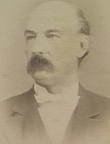Born: Established: 16 Dec 1822 London,
AustLit
 2234215523117583601.jpg
2234215523117583601.jpg
Source: Australian Variety Theatre Archive
Charles E. Horsley
Charles E. Horsley
i(A59409 works by)
(a.k.a.
Charles Edward Horsley)
Born: Established: 16 Dec 1822 London,
Born: Established: 16 Dec 1822 London,
c
England,c
c
United Kingdom (UK),c
Western Europe,
Europe,
;
Died:
Ceased:
28 Feb 1876
New York (City),
New York (State),
c
United States of America (USA),c
Americas,
Gender:
Male
The material on this page is available to AustLit subscribers. If you are a subscriber or are from a subscribing organisation, please log in to gain full access. To explore options for subscribing to this unique teaching, research, and publishing resource for Australian culture and storytelling, please contact us or find out more.
BiographyHistory
Most Referenced Works
Notes
-
The 'Corroboree Chorus' from The South Sea Sisters was later incorporated into Helen Benlow's drama For Sixty Thousand Pounds, first staged at the Princess's Theatre, Sandhurst (Victoria), on 2 November 1974.
-
Entries connected with this record have been sourced from on-going historical research into Australian-written music theatre being conducted by Dr Clay Djubal.
Last amended 31 Jan 2014 07:00:18

